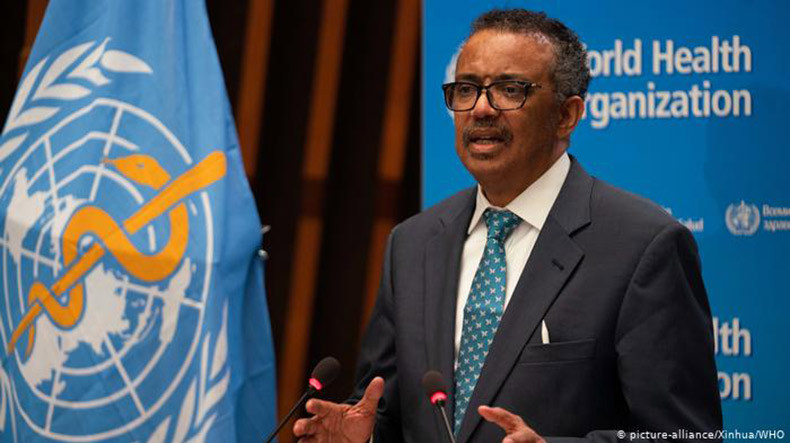
WHO chief at PACE: 'Vaccine equity is not just a moral imperative'
The Parliamentary Assembly of the Council of Europe (PACE) has approved a wide-ranging report making a series of ethical, legal and practical recommendations for the safe and fair worldwide deployment of vaccines against Covid-19, avoiding “vaccine nationalism” and encouraging their uptake in the face of “vaccine hesitancy”.
The new vaccines should be a “global public good", and "immunisation must be available to everyone, everywhere”, the Assembly said in a resolution based on a report by Jennifer De Temmerman (France, ALDE), following a plenary debate today.
The parliamentarians urged, in particular, that all countries should be able to vaccinate their health-care workers and vulnerable groups before vaccination was rolled out to non-risk groups, suggesting that member States and the EU should therefore give priority to countries where this had not yet been possible.
“Vaccine equity is not just a moral imperative. Ending this pandemic depends upon it,” said Dr Tedros Adhanom Ghebreyesus, Director-General of the World Health Organization, who took part in the debate remotely. He pointed out that 75 per cent of doses delivered so far had been deployed in only ten countries, adding: “A me-first approach leaves the world’s poorest and most vulnerable people at risk. It is also self-defeating. These actions will only prolong the pandemic.”
In its resolution, the Assembly said bioethicists and economists largely agreed that priority should be given to persons over 65 years old and persons under 65 with underlying health conditions […], health-care workers, people who work in essential critical infrastructure and in public services […].
To ensure high uptake, governments should act swiftly to “counter misinformation, disinformation and hesitancy” regarding Covid-19 vaccines, be transparent about their safety and possible side effects, reach out to marginalised groups, and engage with local communities.
Vaccination certificates should be used “only for their designated purpose of monitoring vaccine efficacy, potential side-effects and adverse events”, the parliamentarians said.
Newsfeed
Videos






























